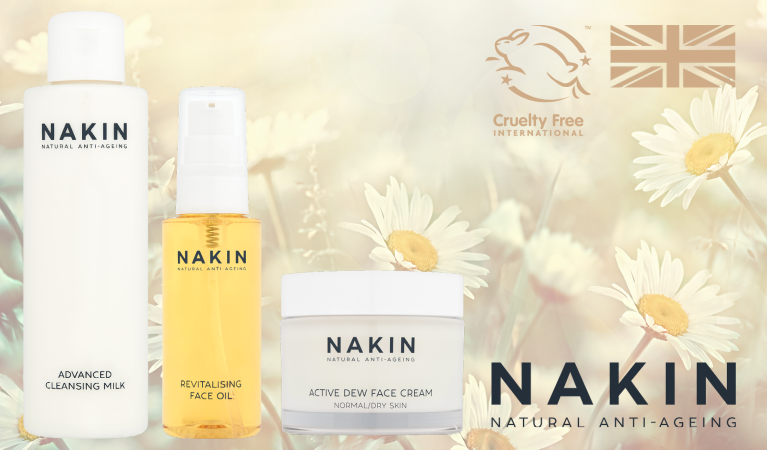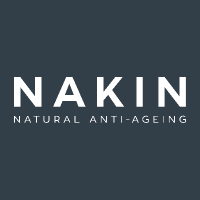What is Digital Ageing?

We recently wrote a blog post about the effects of blue light on our skin, and it made us realise how little is actually known about digital ageing. So, we thought we should write another article explaining what digital ageing actually is and why we need to be aware of it.
What is Digital Ageing?
Digital ageing is a new phenomenon that has come about from the rise in our exposure to blue light. Our use and reliance on screens over the last couple of decades has grown dramatically and with this we are at a point where many of us are surrounded by blue light for a lot of the day. This comes from our computers, tablets, phones, televisions and certain types of lighting. A small amount of blue light is fine for us, and it is found naturally in sunlight. However, the intensity of blue light that we are now exposed to is not great for us and has resulted in what is known as ‘digital ageing.’
Many of us are on screens for large amounts of the day and this can have the effect of accelerating skin ageing. It contributes to all the usual signs of ageing such as lines and wrinkles, sagging, uneven texture, sensitivity and pigmentation. The problem with blue light is that it goes deep into our skin layers and has a negative effect on our collagen and elastin.
Blue light radiation is also known as high energy visible light. It has short high energy waves that are only slightly less powerful than UV waves. The good news is that at present there is not thought to be any link to blue light exposure and cancer. Although our intense use of blue light has only happened in recent times, and so further research is needed in this area. But it is known to contribute to skin ageing. It reaches down to the dermis which is the deeper layers of skin and causes free radical production, that can cause inflammation and negatively affect the skin structure.
Another important factor that we have noticed from digital ageing is the 'tech neck' phenomenon. There can't be many of us that are immune to this from looking at our phones and computers so much.
How Our Tech Necks are Ageing Us
Tech neck is a modern affliction, stemming from the prolonged use of electronic devices such as smartphones, tablets, and computers. This condition arises when we maintain a forward head posture for extended periods, leading to strain on the neck and shoulder muscles. The discomfort, stiffness, and potential long-term damage associated with tech neck can significantly affect one's quality of life. To prevent tech neck, it's essential to practice good posture by keeping screens at eye level and taking regular breaks to stretch and move around. Incorporating exercises that strengthen the neck and upper back muscles can also help mitigate the effects. Additionally, being mindful of how much time is spent on devices and setting reminders to adjust one's posture can go a long way in reducing the risk of developing tech neck. Ultimately, it's crucial to prioritise and maintain good posture habits to prevent tech neck and maintain overall well-being.
Some additional tips for preventing tech neck include using a supportive chair with proper back support while sitting at a desk or table, avoiding prolonged use of electronic devices in bed, and taking frequent breaks from screen time throughout the day. It's also important to be aware of ergonomics when using electronic devices – this includes adjusting the position of keyboards, mice, and monitors to reduce strain on the neck and shoulders.
Another way to prevent tech neck is by incorporating strength training exercises into your workout routine. Strong muscles in the neck and upper back can help support the weight of your head and prevent strain on the muscles. Exercises such as shrugs, rows, and chin tucks can help strengthen these areas.
Additionally, practicing good posture and body alignment throughout the day can also prevent tech neck. This includes sitting and standing with a straight back and relaxed shoulders, avoiding slouching or hunching over devices, and taking breaks to stretch and move around frequently.
Incorporating mindfulness techniques into your daily routine can also be beneficial in preventing tech neck. Mindful practices like yoga or meditation can help reduce stress levels, which can contribute to muscle tension in the neck and shoulders. Taking regular breaks to focus on breathing and relaxing the muscles in the upper body can also help alleviate any discomfort caused and prevent bad posture habits forming.
How to Protect Our Skin From Digital Ageing
It is clear to see what digital ageing is and how it impacts our skin by accelerating the ageing process. Because of this we should take care to protect our skin from digital ageing in the same way that we do with other factors that cause premature skin ageing. There are four simple ways to protect skin from blue light damage and these include.
- Use products that are packed with antioxidants such as Nakin’s Natural Anti-Ageing Skincare, as this topical application will help to fight off free radical damage caused by too much exposure to blue light.
- Protect by consuming antioxidants internally, which is achieved by consuming a diet of richly coloured fruits and vegetables.
- Use sunscreen on your skin to shield it from blue light damage.
- Limit the amount of time that your skin is exposed to blue light.
We hope that you found our article helpful explaining what digital ageing is. It is something that is becoming more prevalent in current times and will continue to be a concern as the build-up of digital ageing effects become more noticeable. Nakin’s range of face products will go some way to help to combat the effects of digital ageing on the face and neck, alongside limiting exposure, eating an antioxidant rich diet and using sunscreen. At Nakin we have a complete face care range that helps to keep skin looking fresh and youthful and you can find out more about our products and range below.
- Discover our award-winning natural anti-ageing face cleansers.
- Discover our award-winning natural anti-ageing face treatments.
- Discover our award-winning natural anti-ageing moisturisers.
- Discover our award-winning natural anti-ageing eye cream.
- Discover our award-winning natural anti-ageing lip care.
- See our full range of natural anti-ageing products, with everything needed in an effective face care routine.
UK Skincare Sensitive Skincare Cruelty Free Skincare Vegan Skincare


Leave a comment